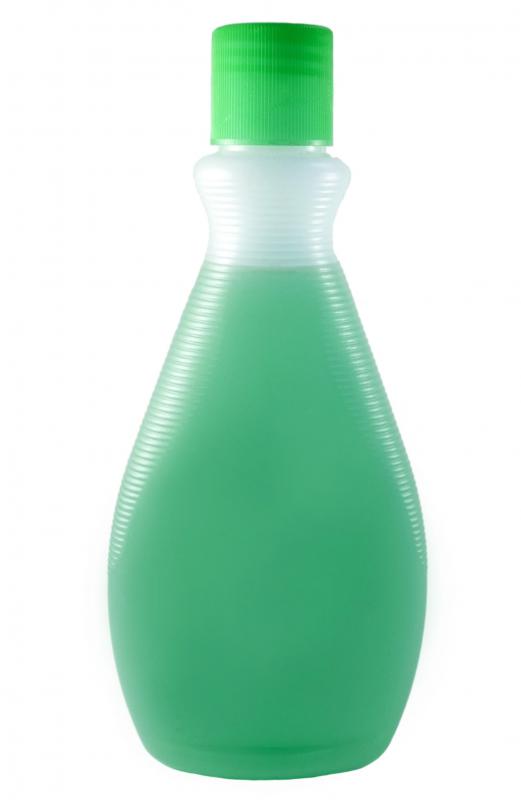At TheHealthBoard, we're committed to delivering accurate, trustworthy information. Our expert-authored content is rigorously fact-checked and sourced from credible authorities. Discover how we uphold the highest standards in providing you with reliable knowledge.
What is Solvent Abuse?
Solvent abuse is intentionally breathing in solvents to try to get a feeling of euphoria or a “high.” Solvents are products such as paint thinner, nail polish remover, hairspray, cooking aerosol sprays and glues. The intentional inhaling abuse of solvents was originally called glue sniffing.
Solvent abusers often place the solvents into a paper or plastic bag to inhale or sniff them. When a bag is placed over the nose and mouth during solvent abuse, there is a very real danger of suffocation. Inhaling solvents may also cause vomiting; solvent abusers have died as a result of choking on their own vomit. Some people think that solvent abuse isn't a serious drug problem because these are household products, yet abusing everyday solvents by sniffing them instead of using them as cleaners and glues can cause serious problems and even death.

Solvent abusers can be of any age, but the highest risk group is thought to be between 11 and 16. Younger people may first experience sniffing solvents to get high with friends before developing a habit of abusing a particular solvent on their own. Household products are often easy as well as cheap for young people to obtain, so parents have to consider that solvent abuse may be an issue for their child. Signs of solvent abuse include a dazed look to the eyes and slurred speech. A red rash around the mouth is one of the most telltale signs of a solvent abuser.

It's important to discuss the dangers of solvent abuse with children in an open, communicative manner. Young teens may not believe the very real dangers of sniffing everyday household products. They may think that a high from these products is relatively safe.
The high from abusing a solvent by sniffing is not safe and it's likely to be very short. This often causes the solvent abuser to repeat the action many times, so a lot of the product ends up being inhaled. In addition to death from suffocation and choking, solvent abusers have died of heart attacks from irregular heartbeats. Intentionally inhaling solvents may also cause damage to the liver, kidneys, heart and brain.

Toulene is a chemical found in most solvents. Toulene's reaction with dopamine in the brain causes a short-term high. Since the body's oxygen levels are decreased when sniffing solvents, there is a risk of suffocation even without the use of a bag. The risk of death or injury from solvent abuse is especially high for children.
AS FEATURED ON:
AS FEATURED ON:

















Discussion Comments
It can kill you, it can cause brain damage. It can mess up your life, for life. Tell them the truth. Is that what you want son, to be a mentally retarded ward of the state ?
And fact is, life without drugs is boring for kids, and they want a break from it as well.
Problem is, there are no drugs, including big pharma drugs, that are good for developing brains. But since we force feed our kids a toxic developmental neuro toxin called fluoride, I guess that really doesn't matter.
Marijuana, is the safest of the bunch. Unless your kid has schizophrenia or related mental disorders.
I don't think I knew anyone who actually did this in high school, at least not personally. I imagine there were people, I just didn't hang out with them. I think other forms of adolescent substance abuse are probably more apparent, though I don't know which is more prevalent.
I had a terrible experience experimenting with solvent abuse when I was in high school. I was young, stupid and very impressionable. I was hanging out with a new group of friends in a parents basement and they started passing around a can of compressed air that they were sucking on the get a sense of high.
I had never done anything like that before but I was curious and I wanted to fit in and I decided to go for it. The minute I sucked in the air I knew I had made a mistake. The feeling that washed over me was uncomfortable from the very start. I felt anxious, nauseous, and really scared. I didn't know how long it would last or how deeply it would effect me. I ended up walking home by myself because I didn't know what else to do or where else to go.
I never experimented with inhalants after that. One experience was more than enough for me. I know that there are worse drugs out there but inhalants are nothing to be taken lightly. I was lucky enough to quit before they had any real lasting effects on my health but not all people are this lucky. The best policy is to simply not start in the first place.
Solvent abuse is one of those things that you really have to be on the lookout for if you have kids. While most parents worry about things like marijuana use and alcohol, having household cleaners around and something as simple as nail polish remover can be a temptation for those who just want a quick high.
Unfortunately all you can really do besides talk to your teens and educate them is keep an eye on them and ask questions. I think if you notice a lot of behavior issues, or they develop a red rash around their mouth, these could be signs of solvent abuse. If worse comes to worse you may need to get them professional help.
@Penzance356 - I really believe that directly talking with your children about teenage drug abuse is really important. I think that too many parents tiptoe around the subject leaving their children without the information they need to protect themselves.
One of the things that bug me the most is that children aren't talked to as equals, just told to not do something. I doubt just saying no has ever really worked on a teenager.
I think you have to present them with real situations, maybe discussing a news story together or the topic. Just leaving them a pamphlet would not work I think. They would just probably shrug it off.
@sunnySkys - I think people often do underestimate the severity of solvent abuse. I actually had no idea it could kill you until I read this article!
I remember when I was younger I knew a few people who got high like this. It always seemed like a really dumb idea to me.
I'm not sure if this is the same thing, but I also knew a few people who did "whippets," which is where you inhale the nitrous out of a can of whipped cream. That might be another one parents should be aware of- I doubt I would know about it had I not worked at a diner when I was in high school.
Inhalant use in this manner is extremely dangerous. In fact, when I was in high school a girl at a neighboring school actually died from solvent abuse. I think it really served as a wake up call for a lot of people who were in denial about inhaling solvents being a form of drug abuse.
My cousin got involved in glue sniffing as a teenager. He struggled to fit in at school and had few close friends. He took up model making as a hobby, and this, quite accidentally, gave him a means of forgetting about his problems.
He's long past this now, but the social and physical effects of inhalants abuse live on. He has a criminal record from the things he did when high. It's also pretty hard for him to get work as his brain was slightly damaged, affecting language and communication skills.
It breaks my heart to share this story, but so few youngsters really consider the long term effects. If his story can help educate parents then it won't be a life totally wasted.
@Penzance356 - As a youth worker I have a fair amount of experience of working with youngsters, and dealing with inhalent abuse.
Although it's by no means the only issue to worry about, it's fair to say that this is very often a 'gateway' drug, putting them at risk of a lifetime being addicted to something.
Personally I believe it's best to begin drug education at birth. Along with teaching children about substances we don't eat or drink, such as weedkillers and bubble bath, so we need to be clear about the things that shouldn't be inhaled.
Having said that, it's never too late to start. Arm yourself with a secent amount of information about abuse, so you will be prepared to discuss this topic armed with facts.
You do need to bear in mind that trying things out is part of growing up. In many ways the best prevention method is to ensure your children have as much support in their teenage years as possible.
Those who are bullied, caught up in family problems and so on are at greater risk of falling victim to risky behavior.
What is the best way to raise the topic of teenage drug abuse with your children? I have two pre-teens and am not naive enough to assume they will never come across this kind of thing.
I've thought about the softly softly approach, say by leaving some leaflets on things like inhalant abuse lying around. But friends with teenagers say you need to be more direct, and include some graphic stories to scare them into not experimenting.
Neither sound quite right to me, but I know I need to do something. Kids these days seem to be growing up faster than ever, so time is running out.
Post your comments